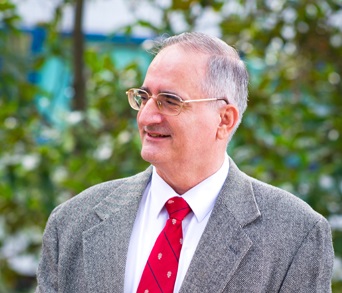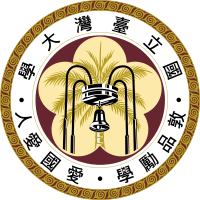【宏觀視野】Recent Events at the Center for East Asian and Comparative Philosophy (CEACOP)

Philip J. Ivanhoe
Chair Professor of East Asian & Comparative Philosophy & Religion Director, Center for East Asian and Comparative Philosophy (CEACOP) Director, Laboratory on Korean Philosophy in Comparative Perspectives City University of Hong Kong Chair Professor
This has been another exciting period of growth and achievement at the Center for East Asian and Comparative Philosophy. Professor Sungmoon Kim, who recently was promoted to the rank of full Professor, was named Associate Director of CEACOP and continues to help lead the center to new heights through his personal example and concerted efforts on behalf of others. His second single-authored monograph, Public Reason Confucianism: Democratic Perfectionism and Constitutionalism in East Asia, is under production with Cambridge University Press, his anthology Confucianism, Law and Democracy in Contemporary Korea recently was published as the first volume in the newly established CEACOP Series in East Asian Comparative Ethics, Politics, and Philosophy of Law, produced in cooperation with Rowman and Littlefield International, and his co-edited anthology Confucianism, A Habit of the Heart is forthcoming from SUNY Press. Dr. Eirik Lang Harris’ ground-breaking book Shen Dao’s Political Philosophy, a study and translation of this seminal Legalist political thinker, is in production with Columbia University Press. The other members of the center have presented and published their work at international conferences and in leading journals in the field and have helped to organize and hold several international conferences and workshops funded by external grants here at City University. Among recent conferences were Reimaging Nation and Nationalism in Multicultural East Asia (24-25 November 2014), supported by an outside grant by the Chiang Ching-kuo Foundation for Scholarly exchange obtained by Professors Kim and Hsin-wen Lee, Korean and Comparative Philosophy and History of Philosophy (12-13 December 2014), supported by an outside grant by the Korean Studies Promotion Service obtained by Professors Ivanhoe and Kim, and, Oneness in Philosophy and Religion, 11-13 April 2015, supported by a multi-year grant from the John Templeton Foundation secured by Professor Ivanhoe.
Over the course of the last year, we were greatly honored and delighted to host two distinguished lectures by world-renowned scholars. The first was delivered on 22 January 2015 by Chaihark Hahm, Professor of Law at Yonsei University, as part of our Distinguished Speakers Series. Professor Hahm spoke on Making ‘We the People of Korea’: Popular Sovereignty and Constitutional Founding in Postcolonial Korea. On the following day, he led a workshop, Rooted Confucian Political and Legal Theory, focused on his presentation for members of the center and invited scholars from other institutions throughout Hong Kong. The second talk on 26 February 2015 featured Professor Jane J. Mansbridge, Adams Professor of Political Leadership and Democratic Values at the John F. Kennedy School of Government, Harvard University, who presented a talk in our Annual Lecture Series entitled, Dynamic Democracy and the New Citizen. Over the following three days, Professor Mansbridge participated in an international workshop, Political Theory and Theorizing East and West, consisting of members of the center and invited scholars from around the world in presenting and discussing work that engaged the theme of her distinguished lecture.
The center also celebrated advancing new or recent official working relationships with a variety of institutions. Professor Ivanhoe will serve as guest editor for a special issue of the European Journal for Philosophy of Religion focused on East Asian Religion. This is the first of several such issues and is one manifestation of our working relationship with the European Journal for Philosophy of Religion, one of the world’s top journals. We also are delighted to be developing our new partnership with the Center for Comparative Philosophy at Duke University. They currently are hosting one of our graduate students, who is completing her PhD research there, and last semester we taught a new course Eastern and Western Conceptions of Human Nature, Ethics, and Politics in cooperation with faculty members from Duke’s Philosophy Department. Finally, the center celebrates the signing of a Memorandum of Understanding between CEACOP and Yonsei’s School of Law aimed at developing cooperative research in shared areas of interest concerning comparative philosophy of law.
These highlights by no means exhaust the activity and achievements of the center and its members. A more complete account of past, current, and future events can be found on our web page[1].
Major Research Projects:
The members of CEACOP are involved in a wide range of research projects, but the two largest and long-standing are Korean Philosophy in Comparative Perspectives and Eastern and Western Conceptions of Oneness, Virtue, and Human Happiness.
Korean Philosophy in Comparative Perspectives and Eastern is a five-year group project[2] funded by the generous support of the Korean Studies Promotion Service and led by our director, Philip J. Ivanhoe. The general aim of our laboratory is to explore sophisticated theories about ethics, moral psychology, self, and political philosophy through a careful comparative study of Korean philosophy. The intent of the members of our laboratory is to describe and analyze a range of issues related to these topics in ways that are sensitive to their historical contexts, looking for and highlighting the common sources and mutual influences that have occurred among the three great East Asian cultures of Korea, China, and Japan, as well as the distinctiveness of ideas developed in each. At times, we will pursue purely historical accounts that include careful conceptual analysis but our primary aim is to show the contemporary relevance of historical ideas, for modern Korean society, other East Asian societies, and contemporary global philosophy. The director has contributed several articles connected to the general theme of the laboratory and is completing a book, under review by Oxford University Press, entitled Three Streams: Confucian Reflections on Learning and the Moral Heart-Mind in China, Korea, and Japan. One of the primary aims of this volume is to present a philosophically critical account of different Confucian thinkers and schools, across place (China, Korea, and Japan) and time (the 10th to 19th centuries). It seeks to illustrate not only how individuals, schools, and cultures influence the development of philosophy but also how shared philosophical problems can lead reflective people under even quite diverse cultural influences toward impressive levels of consensus.
Western Conceptions of Oneness, Virtue, and Human Happiness is a cooperative research project[3] funded for three years with generous support from the John Templeton Foundation. The focus of this project is the oneness hypothesis and its implications for ethics, religion, psychology and political theory. A number of East Asian thinkers, as well as some in the West, argue that in various ways the self is inextricably intertwined with or part of the rest of the world. While such views often are described in terms of a “loss” of self or autonomy, they are more accurately and helpfully understood as arguments for or ways to achieve a more expansive conception of the self, a self that is seen as intimately connected with other people, creatures, and things. In contemporary analytic philosophy, psychology, and cognitive science, this general issue is more commonly discussed in terms of the “boundaries of the self.”
The implications for such a view are quite remarkable and directly and profoundly concern accounts of the self that are found in ethics, religion, psychology and political theory. The more expansive view of the self that is part of the oneness hypothesis challenges widespread and uncritically accepted views about the strong, some would say, hyper-individualism that characterizes many contemporary Western views, but it also has direct and profound implications for how we conceive of and might seek to develop care for the people, creatures, and things of the world. Of course, merely being connected to other people, creatures, and things does not, in itself, entail caring for them and so the oneness hypothesis must explain why and how such connections bring with them ethical implications. Another challenge for the view is the threat of sacrificing the self in the cause of the people, creatures, things, or causes that one sees as part of oneself. The aim of Western Conceptions of Oneness, Virtue, and Human Happiness is to describe the oneness hypothesis, evaluate its plausibility, and explore some of its major implications for ethics, religion, psychology and political theory. The director, Philip J. Ivanhoe, recently has published a paper the Senses and Values of Oneness, which is available on the project’s web page[4]. This essay lays out some of the core issues, challenges, and possibilities for the oneness hypothesis and will be expanded and incorporated into a book length study, tentatively entitled, East Asian Conceptions of the Self, Flourishing, and Human Happiness.
Article Link
[1]http://www6.cityu.edu.hk/ceacop/index.aspx
[2]http://www6.cityu.edu.hk/ceacop/kpcp/index.htm
[3]http://www6.cityu.edu.hk/ceacop/Oneness/
[4]http://www6.cityu.edu.hk/ceacop/Oneness/talk.html



